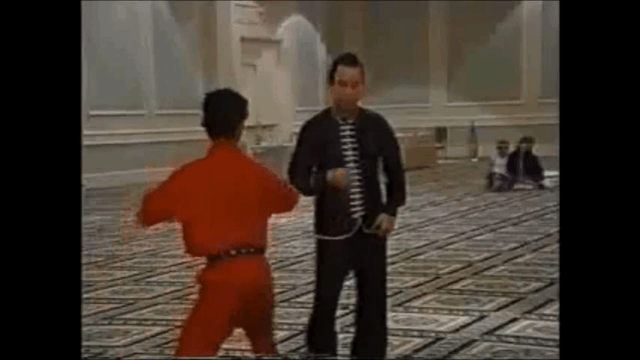Vehemently defending a position is all fine and good, if you're taking the time to understand folks. Even here, you didn't get it, or maybe didn't want to get what I was saying. The pattern isn't your defense of your opinions. It's that you never seem to accept any accountability when you fail to understand something. The other person just didn't say it right, every time.
I'll take another stab at this in a different way. I hope it works better for you.
1: The difference between lack of knowledge and faith based has two components. The first component is you: how you train and how you apply the training. The second component is the person from whom you are learning. This person needs to have bona fide expertise. If you don't have both components, you're in a faith based situation.
2a: Skill is developed by learning and then doing. Conversely, what you do is what you're developing. So, if you're not fighting, you aren't learning to fight. You're learning something. Just not how to fight. Experience in one context determines how successful you can be transferring those skills to another context. The more experience and the more similar the context, the more likely you are to be successful.
Let's say you have two people. One person watches cooking shows every day, and is a real foodie, but has never actually cooked anything more complex than toast and eggs. The other has never watched cooking shows, but grew up cooking cooking meals every day. If you gave each of them a recipe for Beef Wellington, who do you think is more likely to succeed? My money is on the person with experience actually cooking. The more similar the experience, the easier it will be to transfer the skills.
2b: Expertise in a practical skill set is compromised in one generation without application. This means that learning a skill set or trade from an experienced person is great, as long as you then apply those skills. This is the difference between theory and practice. Bridging this gap is done all the time, but it can only be done with experience.
So, person one has expertise... just not cooking expertise. This person has a lot of experience mindfully eating food and learning about how it should look and taste, and as a result has a very educated palate. Maybe they'd make a great food blogger. But unless they actually step into a kitchen and start cooking, they will never become a competent cook.
3: This applies to martial arts and fighting skills, just as it applies to every other skill set. So, when you talk about MMA being derivative, given that skills can be compromised in just a single generation, I think that's a pointless red herring. It only really matters to folks who are clinging to lineage for validation. I personally think the question of whether a technique CAN work is far less important than whether I (or YOU) can use that technique.


